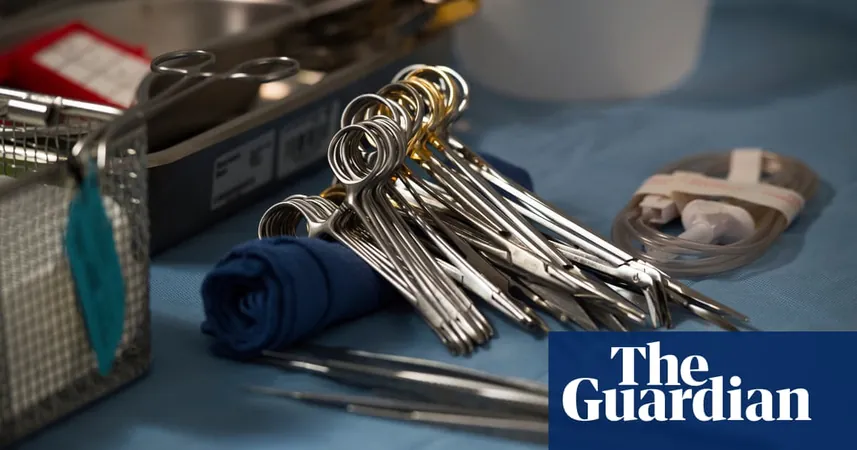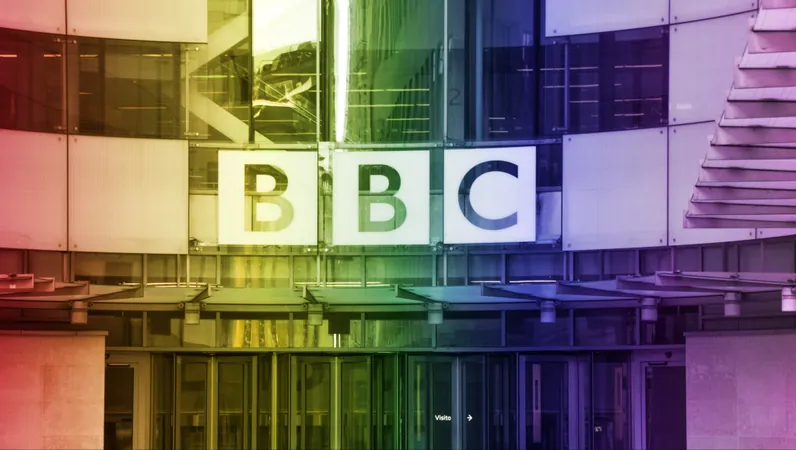
Revolutionary Change: HIV-Positive Patients Can Now Receive Kidney and Liver Transplants in the US!
2024-11-26
Author: Jia
Introduction
In a groundbreaking move that promises to transform the lives of thousands, US health officials announced a new rule on Tuesday allowing people with HIV to receive kidney and liver transplants from HIV-positive donors. This pivotal change is set to take effect immediately, expanding access to vital organs and significantly decreasing wait times for patients, irrespective of their HIV status.
Government Support
Health and Human Services Secretary Xavier Becerra lauded the new regulation, stating, “This rule removes unnecessary barriers to kidney and liver transplants, expanding the organ donor pool and improving outcomes for transplant recipients with HIV.” This announcement opens the door to a more inclusive healthcare approach, allowing HIV-positive patients the opportunity to receive life-saving transplants from an expanded pool of donors.
Research Backing
Recent research has been pivotal in supporting this initiative. A comprehensive study published in the New England Journal of Medicine last month monitored 198 organ recipients over a span of four years. The results indicated that recipients who received kidneys from HIV-positive donors exhibited comparable rates of survival and low rates of organ rejection, matching those who received organs from HIV-negative donors. This evidence bolsters the safety of the newly confirmed practice.
Historical Context
The journey toward this landmark decision has been intricate and marked by progressive milestones. The first successful kidney transplant using HIV-positive donor organs occurred in South Africa in 2010, establishing the safety of this practice for the HIV-positive community. However, it wasn't until 2013 that the US government lifted restrictions, enabling research studies to explore this option further.
Recent Breakthroughs
Originally, studies focused on organ transplants from deceased donors. An exciting breakthrough took place in 2019 at Johns Hopkins University in Baltimore when a medical team successfully executed the world’s first kidney transplant from a living HIV-positive donor to an HIV-positive recipient. Since then, momentum has been building, with over 500 kidney and liver transplants performed from HIV-positive donors across the US.
Significance of the New Rule
This new rule marks a significant step forward not just for HIV-positive individuals but for the entire healthcare system, highlighting a growing recognition of the need for inclusivity in organ transplantation. As the number of available organs increases, it is anticipated that many lives will be saved, making this a truly historic moment in medical history.
Conclusion
Stay tuned as we continue to monitor the impact of this monumental ruling and its implications for the future of organ transplants!


 Brasil (PT)
Brasil (PT)
 Canada (EN)
Canada (EN)
 Chile (ES)
Chile (ES)
 España (ES)
España (ES)
 France (FR)
France (FR)
 Hong Kong (EN)
Hong Kong (EN)
 Italia (IT)
Italia (IT)
 日本 (JA)
日本 (JA)
 Magyarország (HU)
Magyarország (HU)
 Norge (NO)
Norge (NO)
 Polska (PL)
Polska (PL)
 Schweiz (DE)
Schweiz (DE)
 Singapore (EN)
Singapore (EN)
 Sverige (SV)
Sverige (SV)
 Suomi (FI)
Suomi (FI)
 Türkiye (TR)
Türkiye (TR)